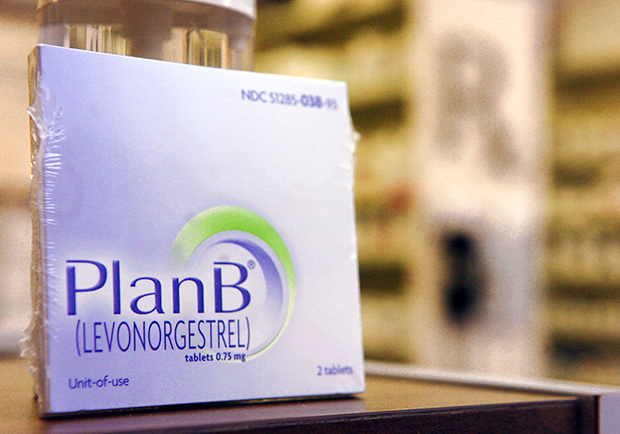Conservative Christian companies and colleges object to paying for drugs they believe essentially abort babies. So they've sued the government for insisting that they subsidize, through insurance programs, emergency contraceptives for their employees. But have these Christians institutions gotten it wrong? Do drugs such as Plan B really cause fertilized eggs not to implant?
The questions will surely reignite today as a federal judge ordered the Food and Drug Administration to make Plan B (the "morning-after pill") available without a prescription to women of all ages.
Teva Pharmaceuticals, the creators of Plan B (the "morning-after pill") has repeatedly asked the FDA to remove its warning label that the drug "may inhibit implantation by altering the endometrium [the inside lining of the uterus]." It increasingly is finding support within the medical research community.
The International Federation of Gynecology and Obstetrics, citing new research, declared last March that Plan B does not inhibit implantation but instead blocks fertilization. Germany's Catholic bishops also cited the research in February, which prompted them to drop their opposition to using morning-after pills in Catholic hospitals for victims of rape.
In today's court decision, U.S. District Judge Edward Korman cited the National Institutes of Health's decision to remove from its website any suggestion that Plan B could affect implantation. The idea that the pill had such effects, Korman said, is "scientifically unsupported speculation."
Evangelical bioethicists interviewed by Christianity Today remained critical of Plan B, but not just because of its reputation for blocking implantation.
Dennis Sullivan, director of Cedarville University's Center for Bioethics, reviewed emergency contraceptive research for a peer-reviewed article in Ethics & Medicine last fall. He found "no evidence" that Plan B causes abortions.
"There's no evidence of that effect," he said. "Our claims of conscience should be based on scientific fact, and we should be willing to change our claims if facts change."
Nonetheless, Sullivan has other problems with the drug, given that recent studies found it might only prevent about half of possible pregnancies. Because women ages 17 and older can purchase the drug without a prescription, he fears many buy it without realizing how ineffective it is. He says the pharmaceutical industry is unethical to promote an ineffective drug.
"I hate Plan B, but we ought to hate it for the right reasons," he said. "[It] has many ethical issues associated with it, but it's not the monster that it's portrayed to be—an abortion-causing drug."
Not everyone agrees with the new research, however. The exact mechanism by which Plan B prevents pregnancies has been in question for decades and is not likely to be cleared up soon, says Donna Harrison, executive director of the American Association of Pro-Life Obstetricians and Gynecologists.
"How you ask the question determines what kind of answer you get," she said. "What you don't have is a lot of funding for research that says, 'Does this drug affect the embryo?' "
Less research has been done on ella (the "week-after pill"), about which there is more controversy because of its chemical similarity to RU-486—the drug used for early-pregnancy abortions.
More sexually active women than ever use such drugs, growing from 4 to 11 percent of such women over the past decade. Gene Rudd, senior vice president of the Christian Medical and Dental Association and a practicing ob-gyn, said new research provides more evidence that the drug may not affect fertilized eggs. However, he still does not recommend Plan B because of its ineffectiveness and the murky knowledge of how it works.
In the meantime, Harrison says, doctors are responsible to let their patients know about the possibility that Plan B could abort embryos.
"As a point of informed consent, it's only honest to say it's possible that this may have post-fertilization effects," she said. "If that matters to you, this is not the contraceptive of choice."










